News
Information
OPRI team will be at the UNFCCC COP30!
2025.11.06
updated: 2025.11.14
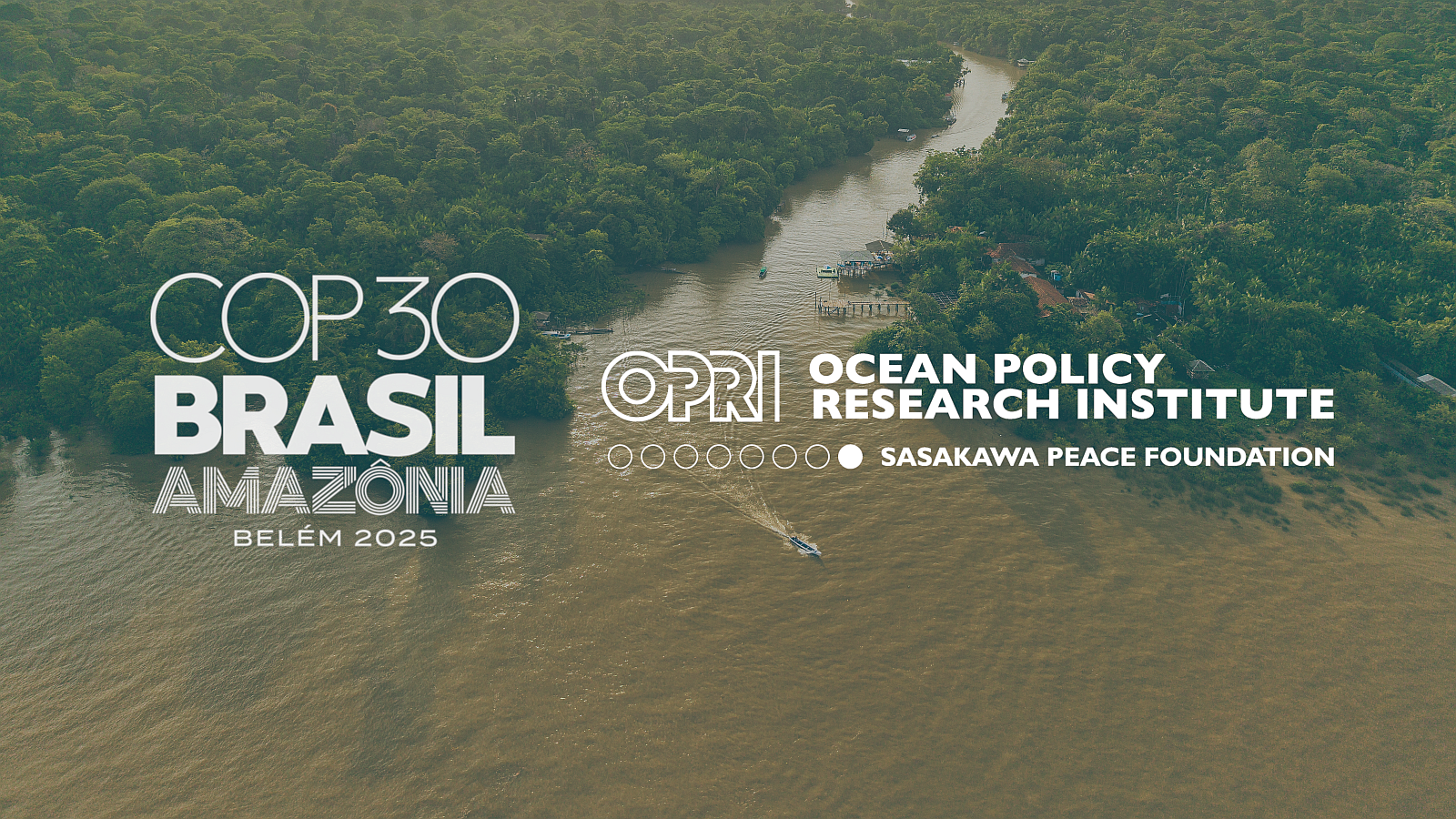
The United Nations Climate Change Conference (UNFCCC), COP30, will be held in Belém, Brazil from November 10 - 21 2025. The Ocean Policy Research Institute (OPRI) of the Sasakawa Peace Foundation (OPRI-SPF), with collaboration with various partners and support of Nippon Foundation, will be hosting multiple sessions in person and online. Details of each event are as follows. Please join us if you are participating in the COP30!
Events in the Ocean Pavilion
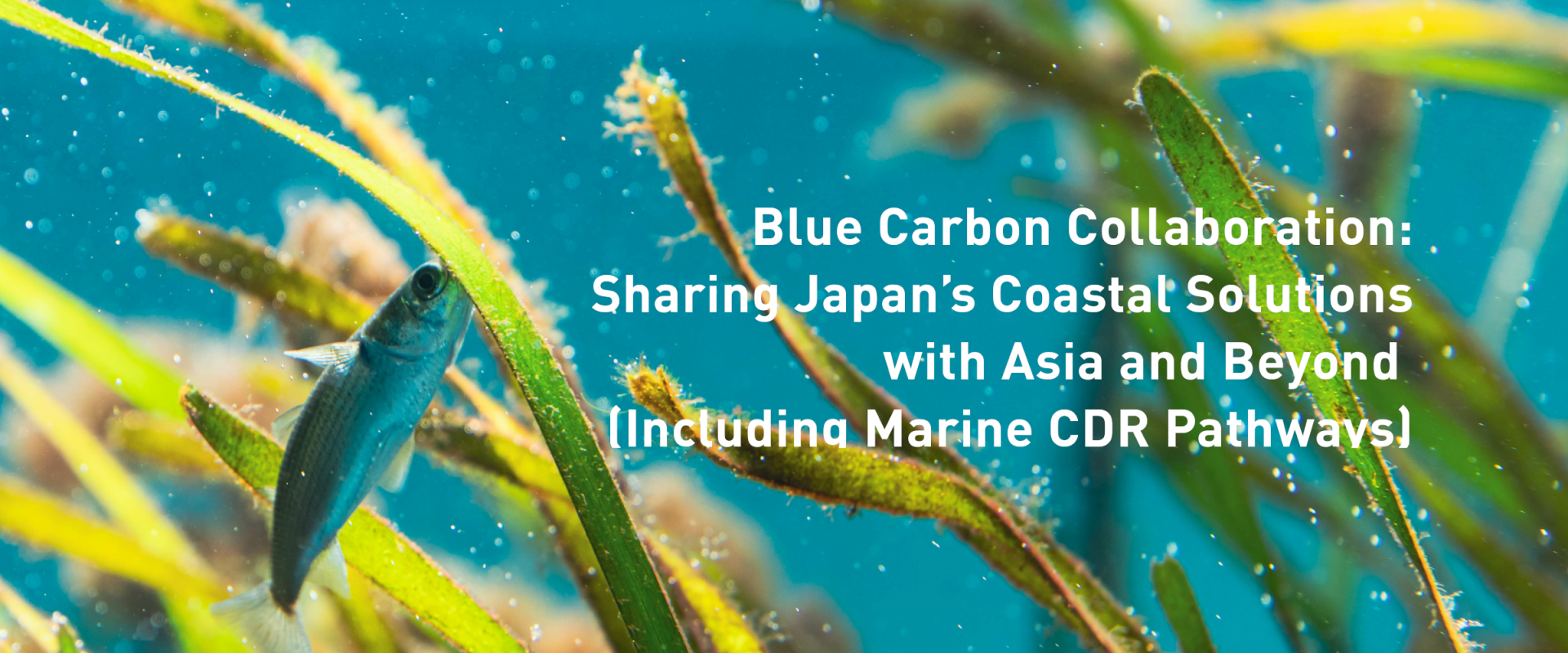
[Schedule] 14:00 - 15:00 (BRT), November 11 (Tuesday), 2025
[Organizer] OPRI-SPF
[Co-Organizer]
[Location] Ocean Pavilion, Blue Zone (in-person only)
Macroalgal ecosystems—especially seaweed beds, kelp forests, seaweed farms, and mangroves—are fast-cycling coastal carbon engines. As nature-led, low-risk climate-repair options, they require rigorous MRV and lifecycle checks, and should be assessed alongside other climate interventions and solutions. Together with our global partners, we will showcase various efforts to demonstrate how these different climate solutions could be assessed and implemented across the globe.
Please click here for the event details.
[Organizer] OPRI-SPF
[Co-Organizer]
[Location] Ocean Pavilion, Blue Zone (in-person only)
Macroalgal ecosystems—especially seaweed beds, kelp forests, seaweed farms, and mangroves—are fast-cycling coastal carbon engines. As nature-led, low-risk climate-repair options, they require rigorous MRV and lifecycle checks, and should be assessed alongside other climate interventions and solutions. Together with our global partners, we will showcase various efforts to demonstrate how these different climate solutions could be assessed and implemented across the globe.
Please click here for the event details.
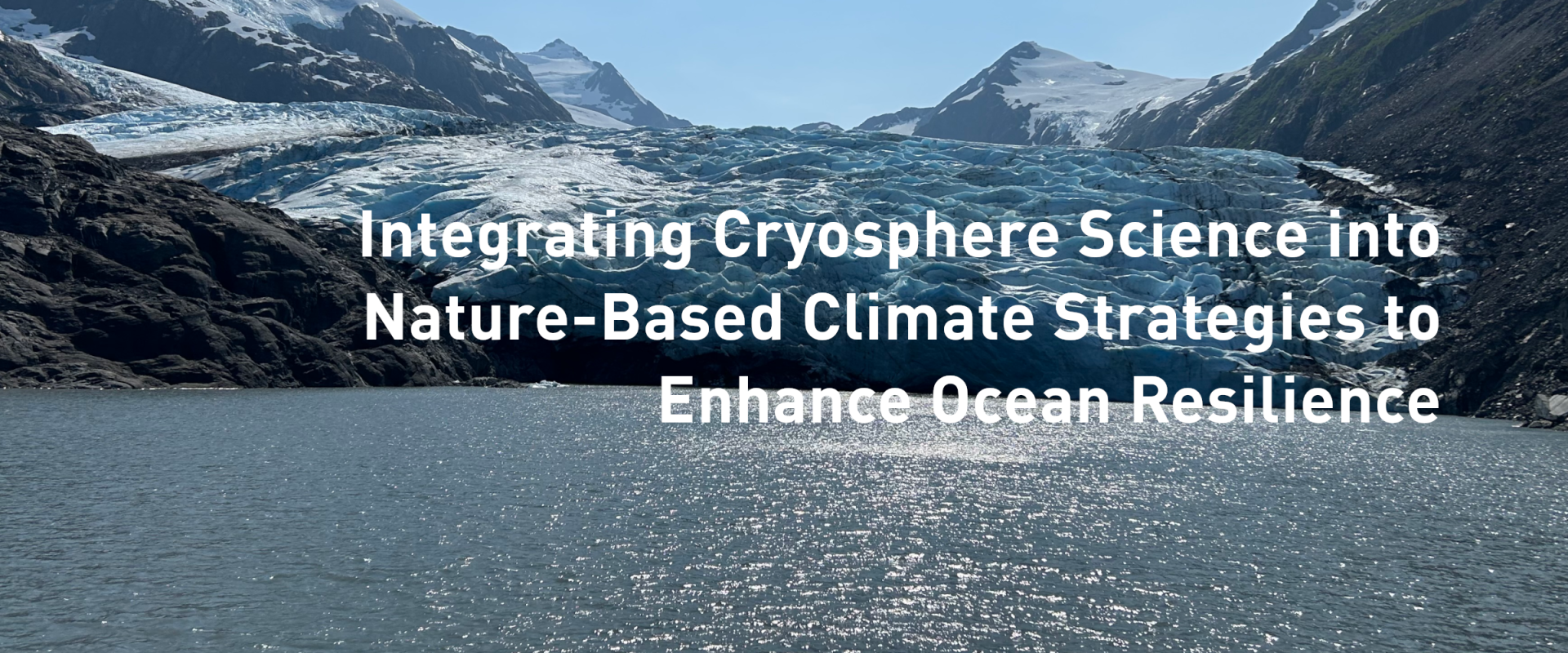
[Schedule] 3:00 pm – 4:00 pm (BRT), November 13 (Thursday), 2025,
[Organizer] OPRI-SPF
[Co-Organizer] Arctic Monitoring and Assessment Programme (AMAP)
[Location] Ocean Pavilion, Blue Zone (in-person only)
Accelerating loss of ice, glaciers, snow, and permafrost is raising seas, disrupting circulation, deepening acidification, and fueling extremes. In our session we are trying to traces these ocean impacts and converts evidence into COP30 policy pathways—adaptation and the GGA, Article 6, and Loss & Damage—braiding insights from the Arctic, Himalaya, and South America to spark cross-regional action.
Please click here for the event details.
[Organizer] OPRI-SPF
[Co-Organizer] Arctic Monitoring and Assessment Programme (AMAP)
[Location] Ocean Pavilion, Blue Zone (in-person only)
Accelerating loss of ice, glaciers, snow, and permafrost is raising seas, disrupting circulation, deepening acidification, and fueling extremes. In our session we are trying to traces these ocean impacts and converts evidence into COP30 policy pathways—adaptation and the GGA, Article 6, and Loss & Damage—braiding insights from the Arctic, Himalaya, and South America to spark cross-regional action.
Please click here for the event details.
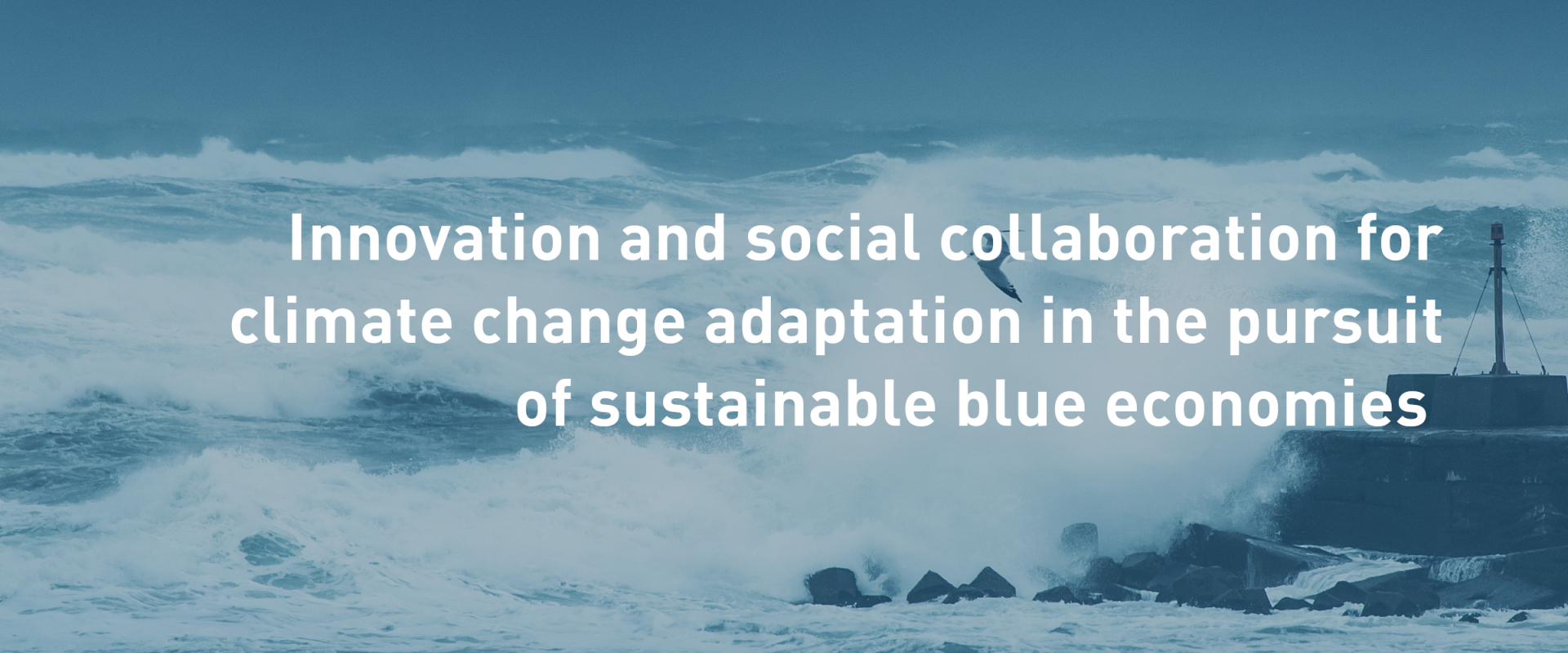
[Schedule] 10:30 am – 11:30 am (BRT), November 17 (Monday), 2025,
[Organizer] SPF
[Location] COP30 SDG Pavilion, Blue Zone (in-person only)
Climate change continues to exert profound pressures on community-based initiatives that promote sustainable blue economies particularly in island and coastal communities that are prone to climate change impacts. To safeguard marine and coastal ecosystems while sustaining livelihoods, it is essential to design and implement effective climate adaptation strategies that foster innovation, strengthen social collaboration, and enhance international partnerships. Increasingly frequent and intense rainstorms, rising sea temperatures, and accelerating coastal erosion are among the major adverse effects of climate change disrupting marine productivity and coastal resilience.
At the same time, efforts to advance sustainable blue economies are further constrained by anthropogenic pressures such as unregulated coastal development, overfishing, marine pollution, and habitat degradation. These cumulative impacts threaten biodiversity, undermine local economies, and weaken the social fabric of coastal communities vulnerable to climate change. Therefore, stakeholder groups and community organizations must critically assess both the climatic and human-induced drivers of change, developing adaptive measures that not only mitigate climate impacts but also reduce the root causes of environmental degradation.
This event will bring together speakers to share experiences and case studies illustrating how climate and anthropogenic factors affect the pursuit of sustainable blue economies. Participants will exchange good practices and innovative approaches to strengthen community resilience through resource mobilization, cross-sectoral collaboration, equitable benefit sharing, and international cooperation aimed at achieving inclusive and sustainable ocean governance.
Please click PDF button below for the event details.
[Organizer] SPF
[Location] COP30 SDG Pavilion, Blue Zone (in-person only)
Climate change continues to exert profound pressures on community-based initiatives that promote sustainable blue economies particularly in island and coastal communities that are prone to climate change impacts. To safeguard marine and coastal ecosystems while sustaining livelihoods, it is essential to design and implement effective climate adaptation strategies that foster innovation, strengthen social collaboration, and enhance international partnerships. Increasingly frequent and intense rainstorms, rising sea temperatures, and accelerating coastal erosion are among the major adverse effects of climate change disrupting marine productivity and coastal resilience.
At the same time, efforts to advance sustainable blue economies are further constrained by anthropogenic pressures such as unregulated coastal development, overfishing, marine pollution, and habitat degradation. These cumulative impacts threaten biodiversity, undermine local economies, and weaken the social fabric of coastal communities vulnerable to climate change. Therefore, stakeholder groups and community organizations must critically assess both the climatic and human-induced drivers of change, developing adaptive measures that not only mitigate climate impacts but also reduce the root causes of environmental degradation.
This event will bring together speakers to share experiences and case studies illustrating how climate and anthropogenic factors affect the pursuit of sustainable blue economies. Participants will exchange good practices and innovative approaches to strengthen community resilience through resource mobilization, cross-sectoral collaboration, equitable benefit sharing, and international cooperation aimed at achieving inclusive and sustainable ocean governance.
Please click PDF button below for the event details.
PDF 375.8KB
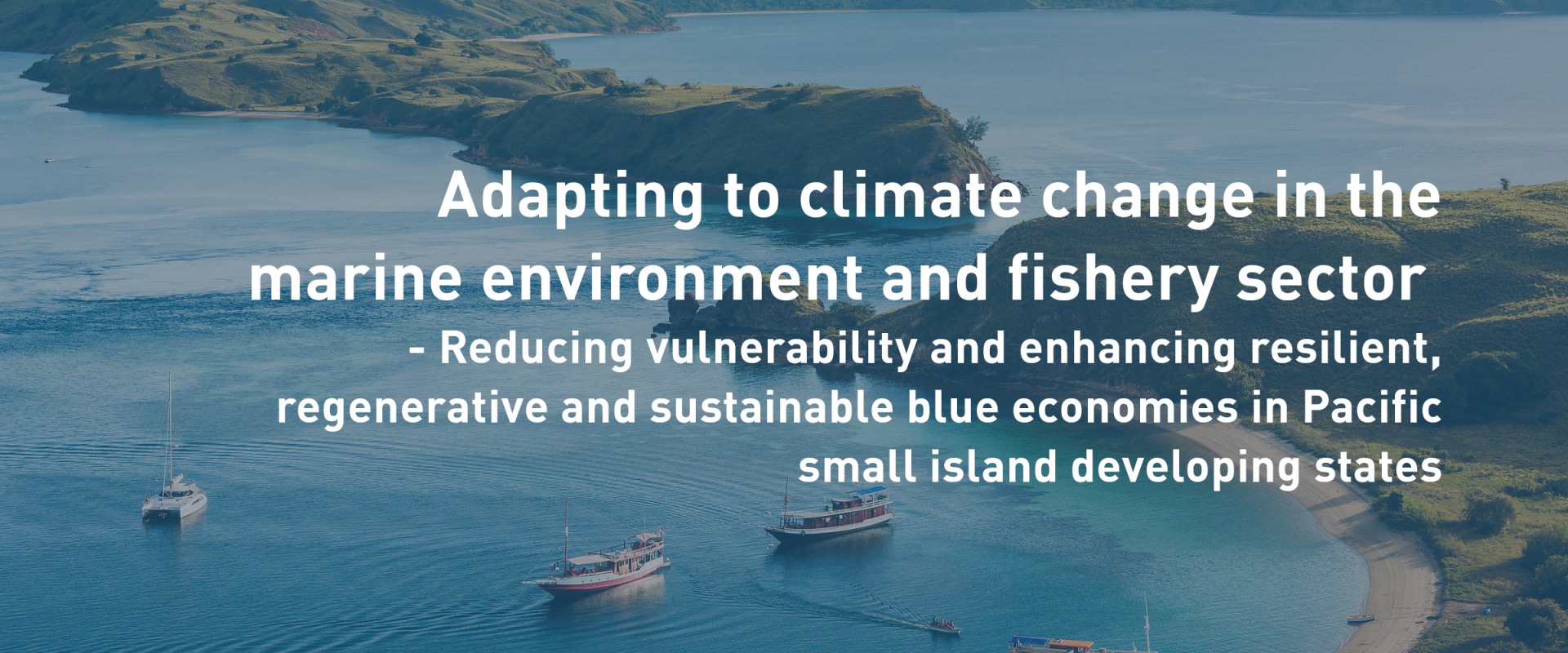
[Schedule] 2:00 pm – 2:50 pm (BRT), November 18 (Tuesday), 2025,
[Organizer] SPF
[Location] Moana Pacific Blue Pavilion, Blue Zone (in-person only)
Climate change and sea level rise threaten livelihood of small island developing states in the Pacific (P-SIDS). Rising sea temperature, intensified rain storms and severe drought are other climate change impacts that undermine the efforts of SIDS in promoting sustainable blue economies. SIDS face disproportionate risks that often go beyond their coping ability while they also need to tackle pollution, overfishing, and IUU fishing. Building capacity for climate change adaptation is critical for strengthening local resilience. Tailored strategies must align with island contexts, integrating traditional knowledge with innovative solutions for sustainable practices. Regional and sub-regional cooperation among SIDS is essential to amplify voice, share resources, and scale solutions. Innovative and collective measures will be explored in order to build capacity to adapt to climate change in ocean and fishery sectors and to build resilient, inclusive and sustainable blue economies for SIDS.
Please click PDF button below for the event details.
[Organizer] SPF
[Location] Moana Pacific Blue Pavilion, Blue Zone (in-person only)
Climate change and sea level rise threaten livelihood of small island developing states in the Pacific (P-SIDS). Rising sea temperature, intensified rain storms and severe drought are other climate change impacts that undermine the efforts of SIDS in promoting sustainable blue economies. SIDS face disproportionate risks that often go beyond their coping ability while they also need to tackle pollution, overfishing, and IUU fishing. Building capacity for climate change adaptation is critical for strengthening local resilience. Tailored strategies must align with island contexts, integrating traditional knowledge with innovative solutions for sustainable practices. Regional and sub-regional cooperation among SIDS is essential to amplify voice, share resources, and scale solutions. Innovative and collective measures will be explored in order to build capacity to adapt to climate change in ocean and fishery sectors and to build resilient, inclusive and sustainable blue economies for SIDS.
Please click PDF button below for the event details.
PDF 383.8KB
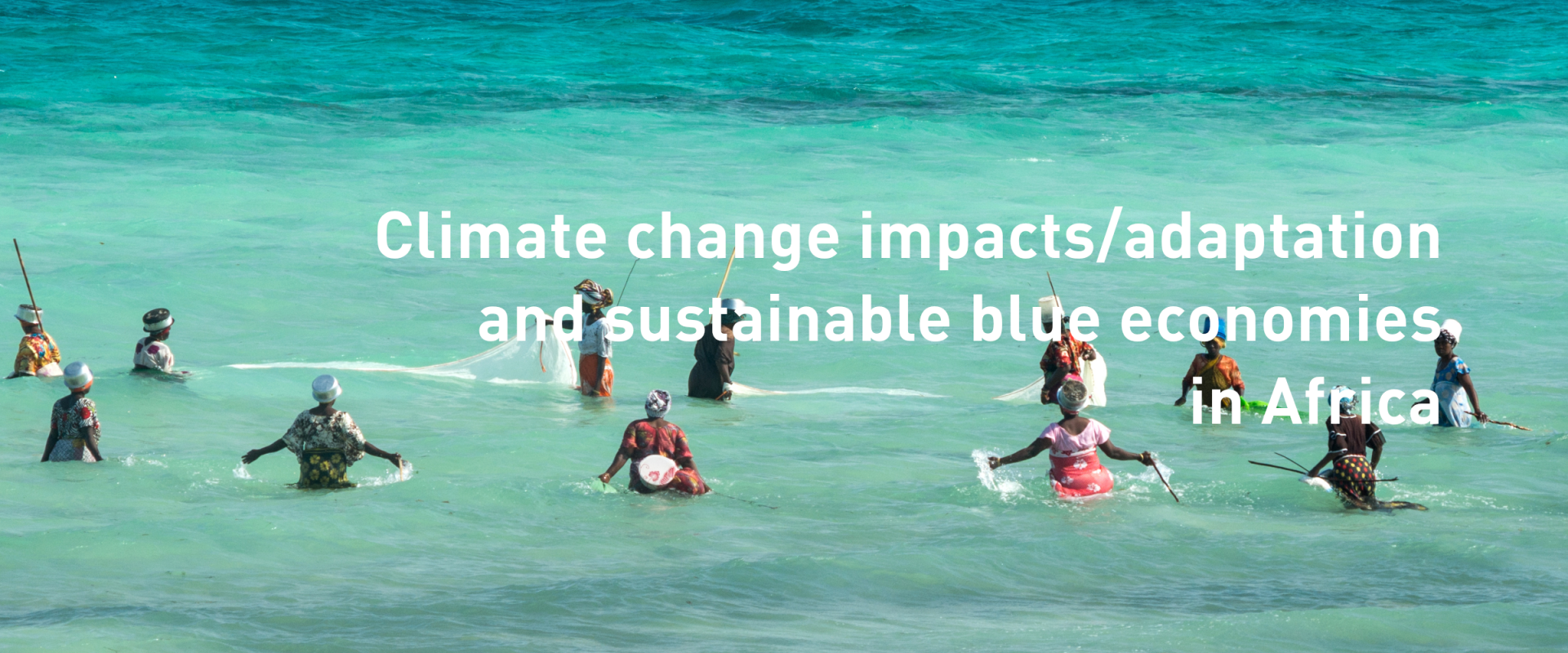
[Schedule] 12:00 pm – 1:00 pm (BRT), November 19 (Wednesday), 2025,
[Organizer] OPRI-SPF
[Co-Organizer] African Development Bank
[Location] Ocean Pavilion, Blue Zone (in-person only)
Climate change is adversely affecting marine ecosystems and undermining blue economies due to rising sea temperatures and stronger storms, and prolonged droughts that alter fish stocks habitats and locations and exacerbate local community livelihoods. These impacts differ across countries and communities, while human pressures such as pollution, overfishing, IUU fishing, and weak nutrient management intensify vulnerabilities. To respond effectively, stakeholders must build stronger capacity to assess and communicate climate impacts, tailor adaptation strategies to local realities, and integrate solutions into broader governance frameworks. Improved access to climate adaptation funds and blue financing is essential to foster resilience of coastal and island communities and improve their livelihood. Speakers will address policy and capacity development, innovative approaches, regional cooperation, international partnership and future challenges.
Climate change actions need to be integrated in the policies and ongoing efforts to promote sustainable blue economies in Africa. It is vital to assess climate change impacts, mitigation potential and adaptation needs in Africa in promoting sustainable blue economies. Innovation, social collaboration and equitable benefit sharing are important factors to effectively promote sustainable blue economies in the context of achieving sustainable development and improving the people’s livelihood.
COP30 Website Page
Please click PDF button below for the event details.
[Organizer] OPRI-SPF
[Co-Organizer] African Development Bank
[Location] Ocean Pavilion, Blue Zone (in-person only)
Climate change is adversely affecting marine ecosystems and undermining blue economies due to rising sea temperatures and stronger storms, and prolonged droughts that alter fish stocks habitats and locations and exacerbate local community livelihoods. These impacts differ across countries and communities, while human pressures such as pollution, overfishing, IUU fishing, and weak nutrient management intensify vulnerabilities. To respond effectively, stakeholders must build stronger capacity to assess and communicate climate impacts, tailor adaptation strategies to local realities, and integrate solutions into broader governance frameworks. Improved access to climate adaptation funds and blue financing is essential to foster resilience of coastal and island communities and improve their livelihood. Speakers will address policy and capacity development, innovative approaches, regional cooperation, international partnership and future challenges.
Climate change actions need to be integrated in the policies and ongoing efforts to promote sustainable blue economies in Africa. It is vital to assess climate change impacts, mitigation potential and adaptation needs in Africa in promoting sustainable blue economies. Innovation, social collaboration and equitable benefit sharing are important factors to effectively promote sustainable blue economies in the context of achieving sustainable development and improving the people’s livelihood.
COP30 Website Page
Please click PDF button below for the event details.
PDF 430.9KB
Virtual Ocean Pavilion
Cryosphere Pavilion
# Other Pavilions TBD
Cryosphere Pavilion
# Other Pavilions TBD
For more information on the above events, please contact as following.
[Contact]
Email: k-tanaka(@)spf.or.jp, a-watanabe(@)spf.or.jp
[Contact]
Email: k-tanaka(@)spf.or.jp, a-watanabe(@)spf.or.jp